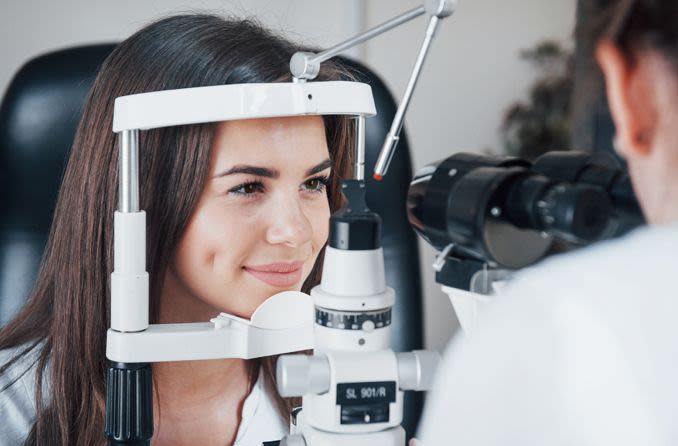How often should you get your eyes checked?

Eye care professionals recommend that you have an eye exam every one to two years. This may vary depending on your age, risk factors and whether you wear eyeglasses or contacts. Though vision screenings are sometimes done for kids at school, eye exams are still important.
Vision screenings may find a vision issue in your child, but they aren’t a substitute for a comprehensive eye exam. An exam is more in-depth, can catch problems a screening may miss, and can find the underlying cause behind issues a screening does identify.
How often children should get an eye exam
Experts say approximately 80% of all learning comes from visual pathways. Yet one in four children with a correctable refractive error does not have it corrected properly. A University of Bristol study also discovered that brain-related visual problems likely affect one in 30 school-aged children.
Because of this, it’s recommended that children have their first eye exam at 6 months of age. Another exam should be done at age three and again before the start of first grade. If a child is not at risk, they can continue having their eyes examined every year until age 18.
Children with risk factors for vision problems may need their first eye exam earlier than 6 months of age and may need eye exams more frequently throughout childhood.
Examples of risk factors include:

Children need regular eye exams to detect vision problems that may interfere with learning.
Family history of vision problems, such as myopia, strabismus, amblyopia, retinoblastoma or a genetic disease that affects the eyes
Prematurity or low birth weight
Difficult labor associated with fetal distress
Extended use of supplemental oxygen at birth
Infection of mother during pregnancy (examples: rubella, venereal disease, herpes, AIDS)
Developmental delays
Functional vision in only one eye
Maternal smoking, drinking or drug use during pregnancy
Physical illness or diseases
Eye disorders such as high refractive error, strabismus and anisometropia
Health conditions associated with ocular conditions
Taking a medication with ocular side effects
Children who currently wear eyeglasses or contact lenses should also have annual eye exams.
| Age range | Low-risk children | At-risk children |
|---|---|---|
| Birth to age 2 | One exam between 6 and 12 months old | Between 6 and 12 months old, or as advised by your doctor |
| Age 3 to 5 years old | At least one exam between age 3 and 5 | At least one exam between age 3 and 5, or as advised by your doctor |
| Age 6 to 17 years old | Before first grade and every year thereafter | Before first grade and every year thereafter, or as advised by your doctor |
| Reprinted with permission from the American Optometric Association | ||

